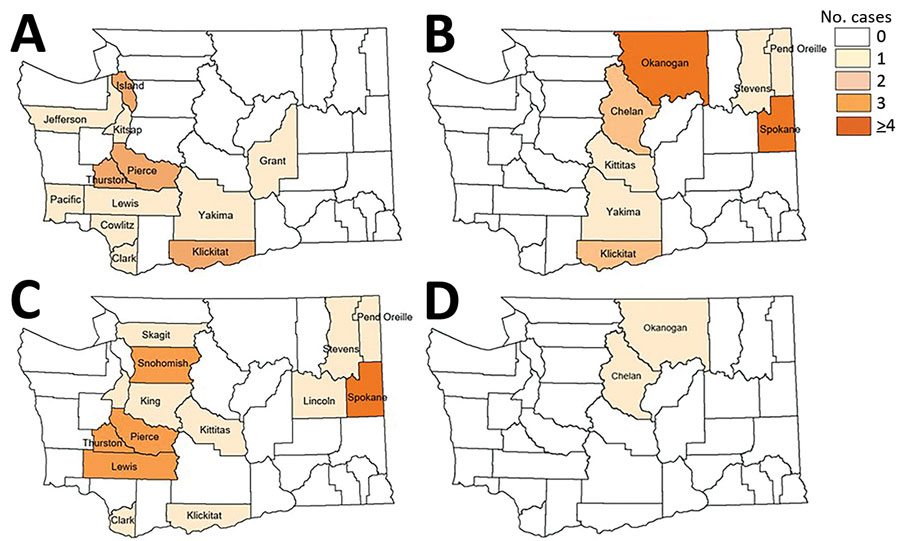Volume 26, Number 4—April 2020
CME ACTIVITY - Synopsis
Ecology and Epidemiology of Tickborne Pathogens, Washington, USA, 2011–2016
Figure 2

Figure 2. Counties of likely exposure for autochthonous human tickborne disease cases, Washington, USA, 2011–2016. A) Lyme disease; B) tickborne relapsing fever; C) tularemia; D) Rocky Mountain spotted fever.
1These authors contributed equally to this article.
Page created: March 13, 2020
Page updated: March 13, 2020
Page reviewed: March 13, 2020
The conclusions, findings, and opinions expressed by authors contributing to this journal do not necessarily reflect the official position of the U.S. Department of Health and Human Services, the Public Health Service, the Centers for Disease Control and Prevention, or the authors' affiliated institutions. Use of trade names is for identification only and does not imply endorsement by any of the groups named above.